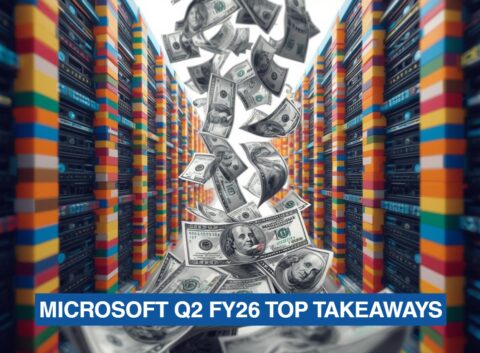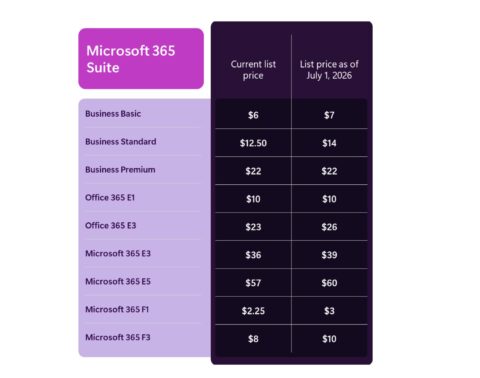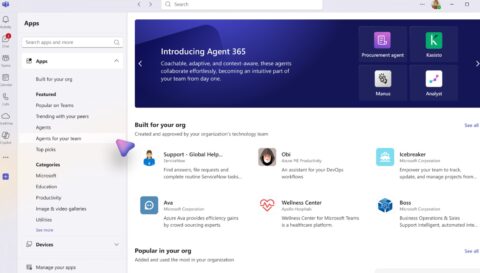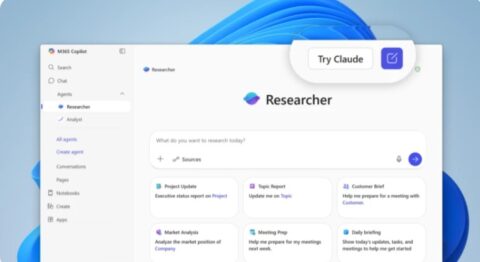February 11, 2026
BlogWindows 11 26H1: Why It’s A Nothing-Burger for Enterprises

Microsoft is releasing two different versions of Windows this year: Windows 11 26H1 and Windows 11 26H2. For the vast majority of business customers, 26H1 is going to be a nothing- burger; it only will run on Qualcomm Snapdragon X2-based devices — plus some other non-specified “select new silicon” — that will come to market in early 2026.
This means for the vast majority of enterprises, the one and only new Windows release that will matter in 2026 is Windows 11 26H2, which will be out later this year, most likely around Oct.
“Organizations should continue to purchase, deploy, and manage devices running broadly released versions of Windows 11 (e.g. versions 24H2 and 25H2) with confidence,” according to guidance in a Feb. 10 Microsoft blog post.
The post adds:
“In short: Windows 11, version 26H1 should not impact your current Windows deployment and purchasing strategy. There is no benefit to waiting or deferring plans based on version 26H1, unless you are specifically targeting adoption of devices with silicon that requires such.”
What Windows 11 26H1 Is … and Mostly Isn’t
Microsoft won’t make 26H1 available to existing Windows 11 users through the usual distribution channels, as it’s not a feature update to Windows 11 25H2. There will be no 26H2 update for those who get 26H1 because Windows 11 26H1 is based on a different Windows core than Windows 11 24H2, 25H2 and the coming 26H2.
(For those who have followed along with Microsoft’s Periodic-table-inspired Windows codenames, Windows 11 24H2, 25H2 and 26H2 are based on the “Germanium” platform release, while 26H1 is based on the release codenamed “Bromine,” as Windows Central explains.)
Microsoft notes that devices that run 26H1 will have “a path to update in a future Windows release,” which many company watchers are assuming will be Windows 11 27H2. Some are wondering if that release might be marketed as “Windows 12” — or maybe some other Copilot- and/or AI-themed name of the moment.
Windows 11 26H1 will not support hotpatch updates, though it will work with Windows Autopatch, Intune and Configuration Manager, Microsoft has said. However, 26H1 will get monthly security, quality, and feature updates on a regular basis, officials said.
Microsoft added entries for Windows 1 26H1 to its lifecycle product pages on February 10. For enterprises and education, the end of support date for 26H1 is March 13, 2029; for Home and Pro customers, the end of support for 26H1 is March 14, 2028. Additionally, the Microsoft Release Health Dashboard, which also now includes an entry for 26H1, notes that starting with Windows 11 26H1, .NET Framework 3.5 is no longer a Windows Feature on Demand optional component, and support for it ends Jan. 9, 2029.
Going Back to Windows Basics
Microsoft’s disclosure about cleaving Windows, at least temporarily, into two branches comes at an interesting time.
Following months of Windows customer complaints about Microsoft prioritizing AI over operating-system fundamentals (as evidenced by a number of recent problematic Windows patches), company officials said earlier this month that they plan to get back to basics with Windows and focus on quality and reliability.
Shortly thereafter, Microsoft announced via a blog post some changes it is making in Windows around transparency and consent. As part of this work, the company plans to add a “Windows Baseline Security Mode,” which will ensure that only properly signed apps, services, and drivers are allowed to run, with the option for users and IT admins to override these settings for specific apps when needed. Microsoft also said Windows will now prompt users when trying to access sensitive resources like files, cameras or microphones, or install other unintended software. In addition, apps and AI agents will give users and IT admins better visibility into their behaviors. All of these changes will “roll out through a phased approach,” officials said, without providing a specific timeline.
Separately, Microsoft is starting to roll out new Secure Boot certificates for older PCs as part of the regular monthly Windows updates (or via organizations’ own update processes). The Secure Boot Certificates, stored inside PC firmware, are set to start expiring in June 2026. Secure Boot technology is meant to block untrusted code at the earliest stages of the boot process.
















